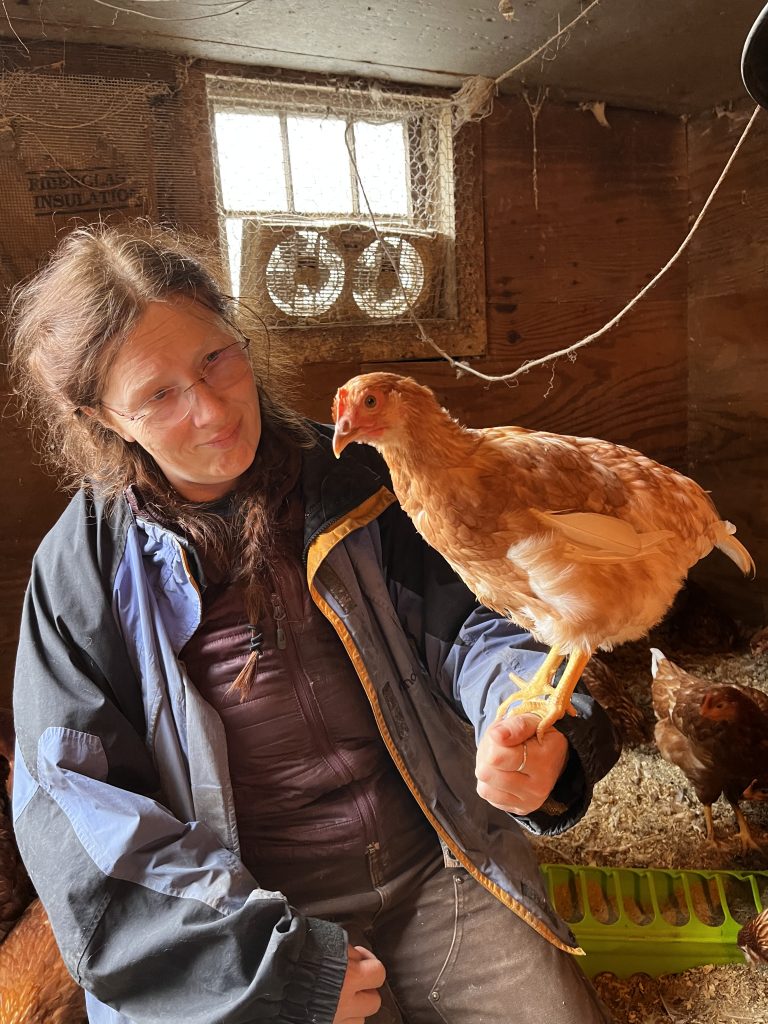It was the hardest lesson I had to learn as a writer.
If people who never met me liked something I wrote, they somehow got it in their heads that I was….well…likable and admirable. But every person has different qualities that they find likable and admirable. And I couldn’t possibly have all those qualities. So when I met ardent fans in person, I found that many folks talked to me as though they knew me….And there was an assumption that I somehow embodied those traits that they valued.
Some folks thought I was super intelligent with a comprehensive knowledge of all things organic and regenerative, from compost heaps to Farm Bill legislation to veterinary practices.
But some folks thought I was an ultra-right Christian who served her husband and never cussed a day in her life, who stayed up all night canning, baking bread and knitting.
Some folks thought I could wrestle livestock, slaughter cattle and cut them up all while stirring a perfect hollandaise and helping my kids with their math.
Well shit.
I couldn’t (and wouldn’t) live up to any of it. So instead I suffered headaches and backaches and stomachaches and anxiety….Until I inevitably did something that showed I wasn’t what my “biggest fans” thought I was. And then they were disappointed.
I eventually learned that I couldn’t please everyone. Some folks can just read my work and simply enjoy it or think about it or argue with it, then move on with their lives. Others absorb it at a different level. It isn’t uncommon for people to have reactions to my writing that have more to do with what’s happening in their lives…and relatively little to do with me whatsoever. I have often shared this experience with my good friend and long-time customer, Corbie Mitleid, who works as a world-renowned psychic and medium. Corbie talks about this phenomenon in this week’s episode of her podcast, The Psychic Yellow Brick Road, titled Thank your inspirations, then leave them behind. Thought some of you might enjoy listening. Have a great week!

It is *really* hard to stop wanting to meet other people’s expectations. That childhood training just doesn’t want to go away. That is one of the benefits of aging, though – it definitely gets easier to not care when you’ve disappointed someone.